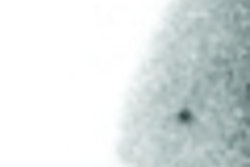Pharmaceutical developer Bristol-Myers Squibb Medical Imaging of North Billerica, MA, is touting the results of a clinical study that found that its Cardiolite heart imaging radiopharmaceutical could be effective in detecting coronary artery disease (CAD) in asymptomatic diabetic patients.
A multicenter group led by researchers from Yale University School of Medicine in New Haven, CT, examined over 1,100 patients with type 2 diabetes, ranging in age from 50-75 years, and without known or suspected CAD. Patients were randomized to receive Cardiolite, a technetium-99m-based radiopharmaceutical, and the pharmacologic stressor adenosine with five-year follow-up or follow-up alone.
The results indicated that of the 522 patients randomized to receive Cardiolite, 113 (22%) had an abnormal stress test, suggesting the presence of "silent" CAD, or CAD in patients with no outward symptoms. Of these patients, 83 (73%) were found to have myocardial perfusion abnormalities, including 33 patients who had moderate or severe perfusion abnormalities. Thirty patients were found to have normal perfusion but other cardiac abnormalities.
Bristol-Myers Squibb said the results are significant because CAD is the leading cause of death for the 18 million Americans with type 2 diabetes, and CAD strikes diabetics twice as often as the general population. The results indicate that current guidelines for screening diabetics for heart disease might need to be revised, according to the researchers. The study was published in the August issue of Diabetes Care (August 2004, Vol. 27:8, pp. 1954-1961).
By AuntMinnie.com staff writers
August 9, 2004
Related Reading
Bristol-Myers Squibb, Adenosine begin phase II trials, March 24, 2004
Kereos, Bristol-Myers Squibb to collaborate in molecular imaging, March 3, 2004
Fujisawa, Bristol-Myers Squibb ink promotion deal, October 21, 2003
DraxImage, Bristol-Meyers Squibb extend partnership, July 2, 2003
AnorMed, Bristol-Myers Squibb link up, December 10, 2002
Copyright © 2004 AuntMinnie.com




















